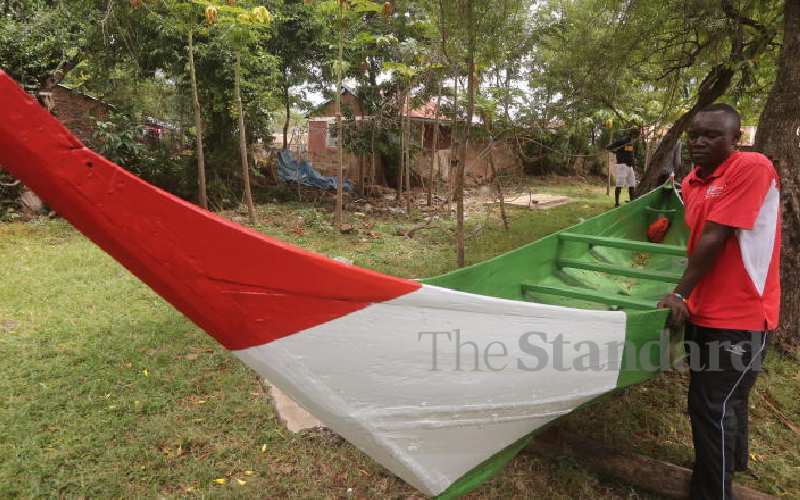×
The Standard e-Paper
Home To Bold Columnists

Leonard Otieno, a boat maker at Dunga beach, Kisumu. [Collins Oduor, Standard]
On the shores of Lake Victoria at Dunga Beach, Leonard Otieno is busy making a boat using timber.







